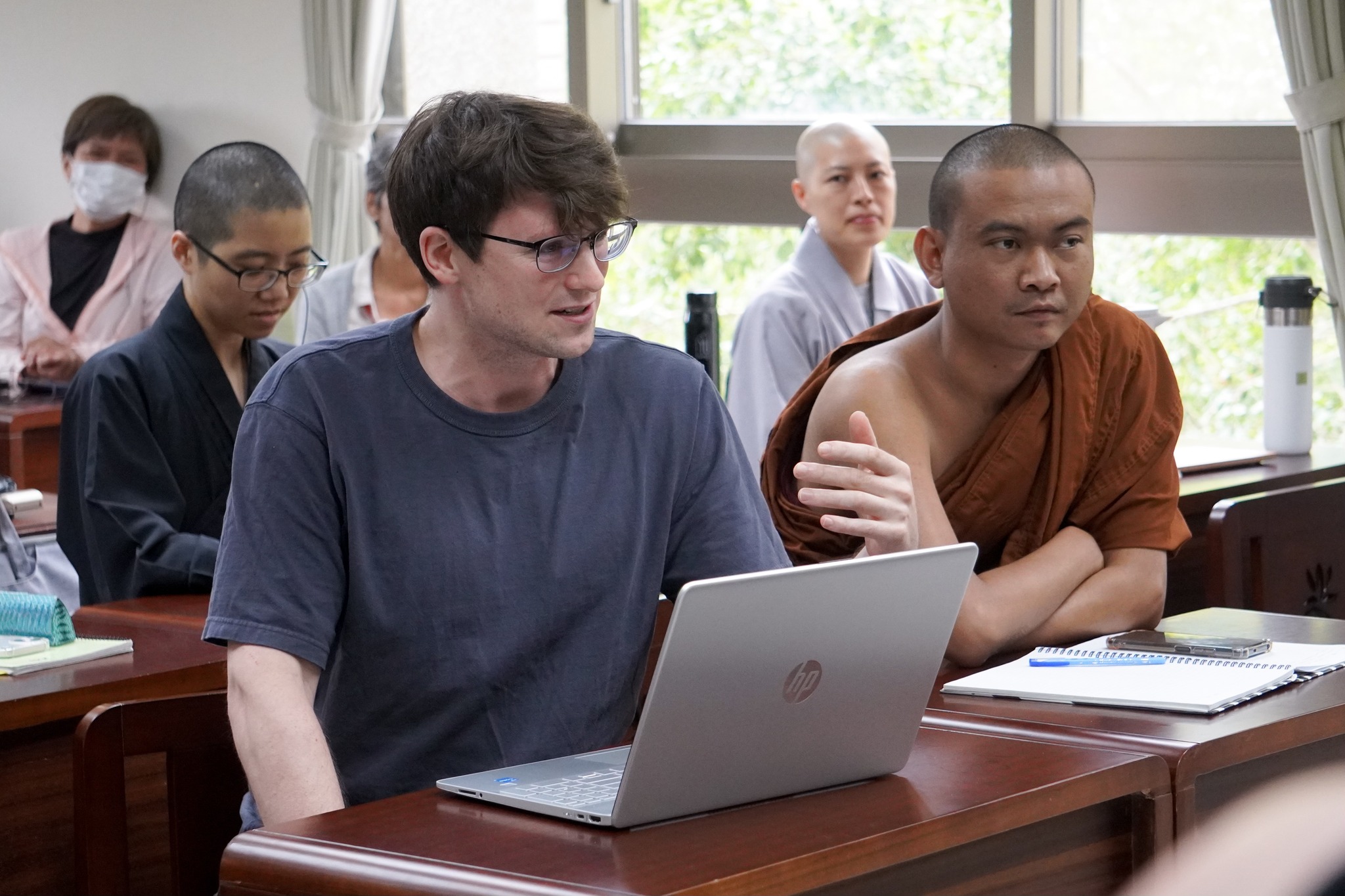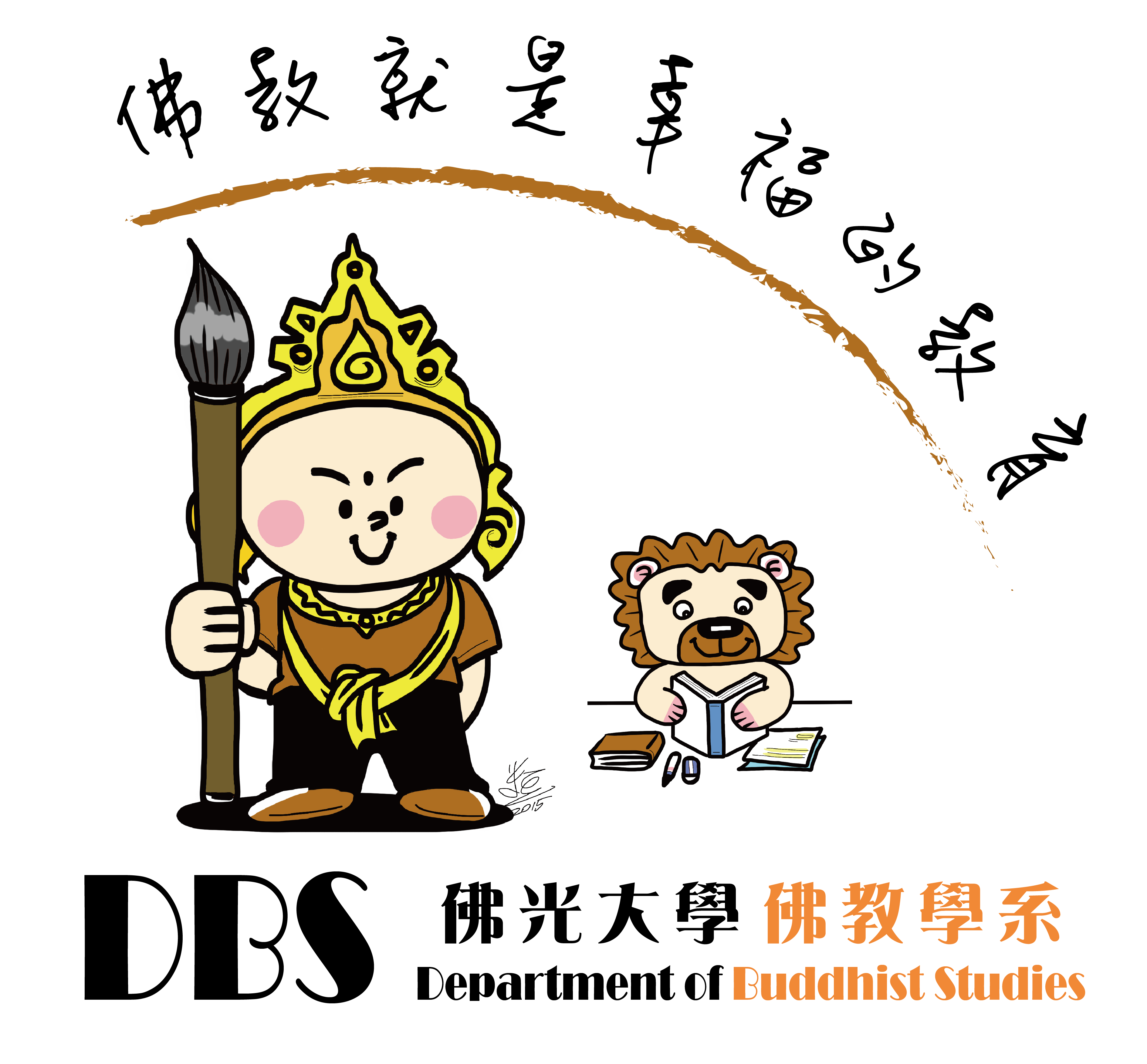On October 19, 2023, the Graduate Student Association and the Buddhist Studies Center jointly hosted the inaugural event in the "Methodology of Buddhist Studies" series, focusing on the theme of "A Dialogue on Buddhist Fieldwork." Distinguished guest speakers for this event included Professor Brooke Schedneck from Rhode College and Rabbi Dr. Cody R. Bahir representing the Taiwan Jewish Community. An audience of approximately 35 graduate students actively participated in this enlightening discussion.

The primary objective of this event was to provide students with valuable insights into the practical application of fieldwork methodologies within the context of Buddhist studies. In this regard, the series aimed to equip students with a deeper understanding of research approaches in the field. Below is a feedback excerpt from one of the M.A. students, Lewis Hurd.
___________

I was grateful to attend a talk given by Dr. Cody Bahir and Professor Brooke Schedneck in which they detailed their experiences conducting field work and the methodologies they implemented to gather the necessary material that made their publications possible. The opportunity to learn about two unique and significantly different approaches to research provided valuable blueprints for our student body, many of whom are looking forward to conducting field work as part of their own research or are already in the process. Their accounts of the real-world challenges they faced when gathering information in the field, as well as their entertaining anecdotes, left me feeling inspired and wanting to ask more questions than the scheduled time allowed.
First, Professor Schedneck recalled her experience in the northern Thai city of Chiang Mai. It wasn't easy to get the local people to open up and share with her, but over time she was able to cultivate valuable relationships through volunteering as an English teacher. She was able to interview many English teachers who came to Thailand from abroad, and had discussions with monks from all ranks. Furthermore, her knowledge of Thai helped her to conduct interviews with lay Buddhists of different backgrounds. These connections, she stressed, were ultimately what made it possible to conduct the wide range of interviews and surveys that contributed to her PHD as well as her most recent book.
Dr. Bahir also stressed the importance of an insider view. Dr. Bihar came to Taiwan to research Japanese Shingon traditions existing within Taiwan, not having the slightest idea of what he would find. Seemingly following in the footsteps of the religious seekers of ancient China, Dr. Bihar showed up unannounced at the doorsteps of various temples (with various Shingon ritual manuals in hand) in search of someone willing to speak with him. Unphased by a string of rejections, he finally found a temple that welcomed his earnestness and introduced him to the revival of "Zhenyan" teachings in Taiwan. Through his connection there, he came to know about the legacy of Wugaung who, while relatively well known in Taiwan, had so far gained little attention among Western scholars.
I was moved by the speakers' candid and sometimes humorous comments as they shared their stories, and I left the talk with the impression that field work can take many different forms and need not follow a fixed procedure. I hope that they will both be willing to come back to our university someday to inspire another generation of students.
----------------
Further Reading:
Bahir, Cody R. 2017. Reenchanting Buddhism via Modernizing Magic: Guru Wuguang of Taiwan’s Philosophy and Science of ‘Superstition’. Ph.D. Dissertation, Leiden University. https://www.universiteitleiden.nl/en/research/research-output/humanities/reenchanting-buddhism-via-modernizing-magic.
Schedneck, Brooke . 2021. Religious Tourism in Northern Thailand: Encounters with Buddhist Monks. Seattle: University of Washington Press.

 College and Department of Buddhist Studies, FGU
College and Department of Buddhist Studies, FGU